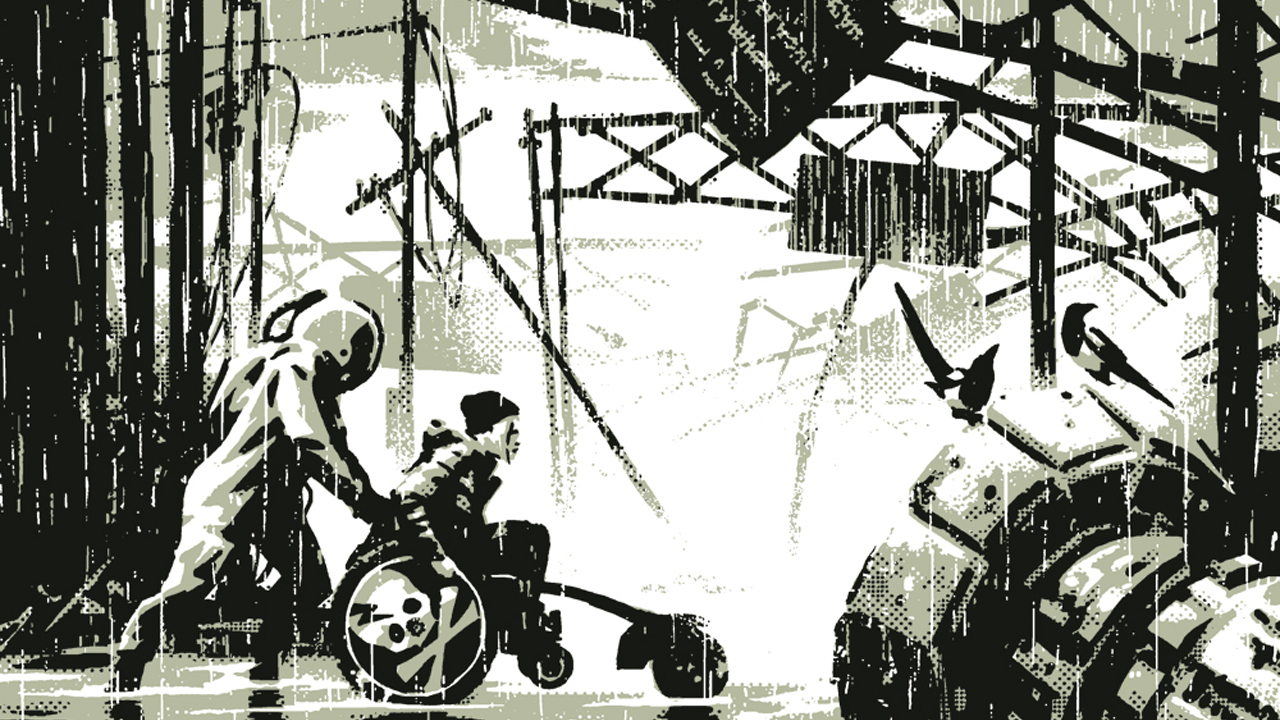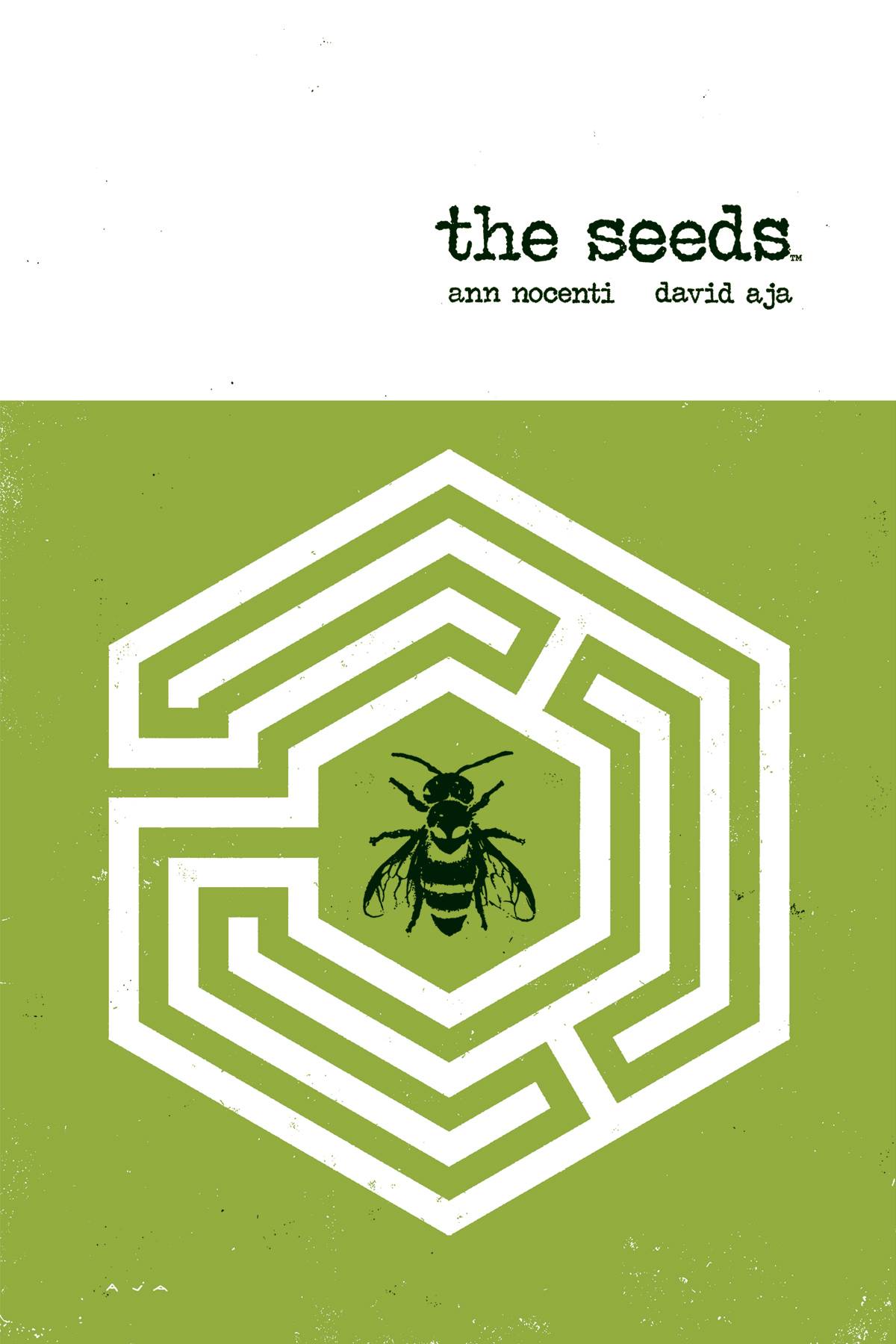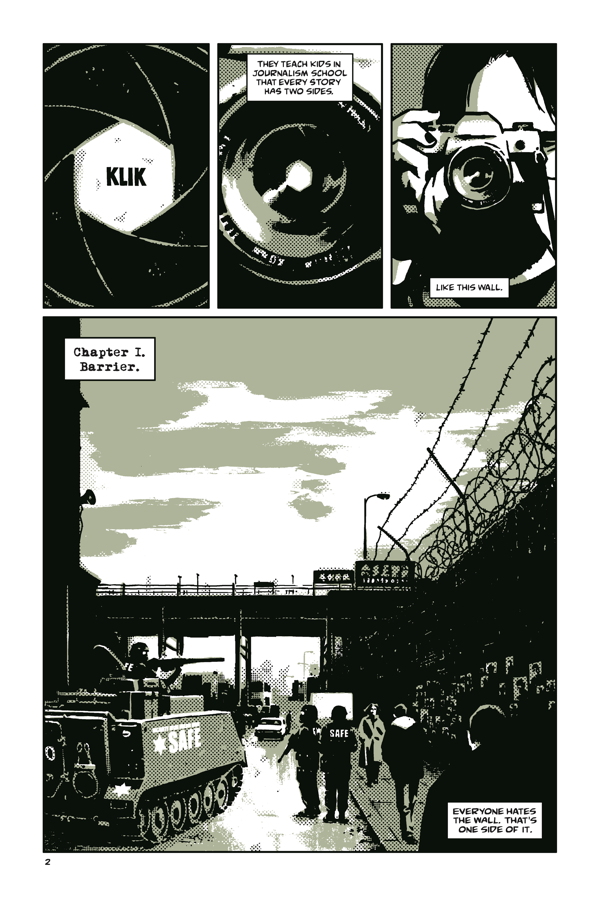Ann Nocenti reveals how she chased her obsessions for The Seeds
Ahead of the release of The Seeds collection and the unpublished second-half of the story

Ann Nocenti and David Aja's The Seeds is about dire changes on Earth and humanity, and the comic book series itself went through several changes as well in its development. But as Aja said in The Seeds afterword Newsarama published earlier this week, it evolved - for the better.
The Seeds is an eco-thriller / love story where aliens have landed on Earth to find it on the brink of collapse due to environmental and man-made disasters. A small group of humans has branched off to try to instigate a tech-less society and a way forward, but when one of the aliens falls in love with one of those humans it gets (even more) complicated.
The Seeds originally debuted in 2018 as a four-issue series, but after two issues the creators and publisher decided to forgo serialization and instead finish the story in a collected edition.

In Nocenti's afterword (titled 'A Sense of Tides'), she explains the evolution and the "obsessions" which led her towards what The Seeds ultimately became. Dark Horse has shared Nocenti's afterword with Newsarama exclusively, ahead of the December 23 publication of The Seeds collection - which includes the unreleased, second-half of the limited series.
A Sense of Tides
Rachel Carson's Silent Spring sounded a blunt alarm in the '60s — humans were wrecking earth and didn't seem to care. "We allow the chemical death rain to fall as if there were no alternative," she wrote. When I was in China in 2014 the city pollution was so severe, wearing masks so normal, that people had gone beyond utility and were personalizing them. A biker on a black bike wore a grinning skull mask as if amused by and welcoming death by pollution. Little girls wore Hello Kitty masks in the guise that life was still a delight. Were humans going to fashionably adapt to a toxic world, rather than stop polluting?
I started writing The Seeds (a.k.a. Scoop) in January 2016. Time flowed over the narrative and rolled it back. Notions meant to be futuristic slammed into the present. Masks are now omnipresent, shields against an invisible pestilence which no one, but everyone, knew was inevitable. With today's masks, the normalcy of estrangement is profound. Unless you can smile with your eyes, all bets are off.

As I write this, journalists are comparing 2020 to 1968, in terms of civil unrest and a possible endpoint of change. gonzo journalist Hunter S. Thompson, who believed that the exaggeration of the truth revealed a deeper truth, wrote about the '60s in Fear and Loathing in Las Vegas, "…There was madness in any direction, at any hour. You could strike sparks anywhere … We had all the momentum; we were riding the crest of a high and beautiful wave..." And, a line so chilling it still haunts me today: "So now, less than five years later, you can go up on a steep hill in Las Vegas and look West, and with the right kind of eyes you can almost see the high watermark — that place where the wave finally broke and rolled back."
Get the best comic news, insights, opinions, analysis and more!
Redolent of where we are now, navigating the shoals. Stories slip into the past and shoot into the future until they feel free of time.
The Seeds is born of obsessions. Spending time in magazine bullpens taught me about the myth of impartiality. That experience became Scoop, a '50s-style tabloid satire. The reporters were hoax hunters chasing smart animals, rubber aliens, murder-bots, and other myths. When a reporter falls in love with a real alien, one bogus story becomes genuine.

Then a presidential election spawned a slippery slope of 'alternative facts.' Scoop became unfeasible, as it might be read as a commentary on the 'fake news' of the day, and the project was dumped. Artist David Aja and I played virtual ping-pong, tossing each other images and ideas, keeping the story on a low simmer. My beekeeper friends noticed the bees were leaving, and if the bees left, humankind would not survive. The bees flew into the story. David sent me an image of a dead astronaut floating in space, and that drifted into the narrative. And so it goes. To writers out there, I would say chase your obsessions and learn how to roll with them as the times shift underfoot.
Lucky for us, something magical happened -- Karen Berger started Berger Books. With Karen at the helm, the comic became possible, real, and good. I can't overstate the importance for the health of the comics industry to have strong editors and independent imprints. With Karen, I was also able to tell a noir tale of three generations of women called Ruby Falls, with the wonderful Italian artist Flavia Biondi. I am also grateful to Richard Bruning for his stellar art direction, to Rachel Boyadjis for their skill as our copywriter, the team at Dark Horse, and, of course, brilliant artist David Aja.
The Seeds is not a commentary on current events, it is a speculation created years ago about an imagined near future. By the time this book comes out the world will have shifted further. We created a fever dream, a dystopian zone of human disconnection, and yet, in the end, it is a wish that something leads us out, be it science, nature, the rising tide of human resilience … or the bees.
Ann Nocenti
June 2020
New York
Check out our list of the best comics readers for Android and iOS devices.
Newsarama is a comic book website covering news, interviews, features, deep dives, reviews and more. Now part of GamesRadar, the website was first established in 1995 by Michael Doran.


